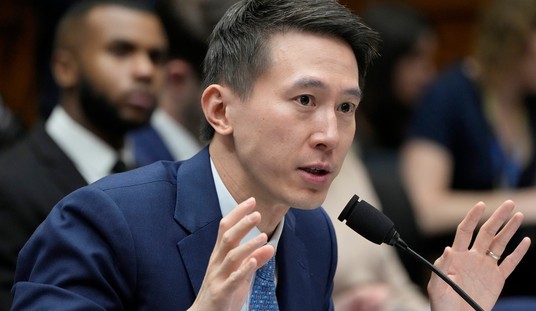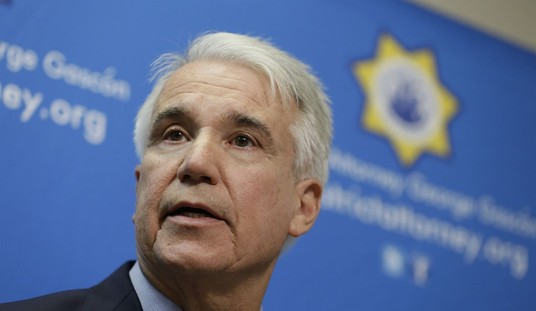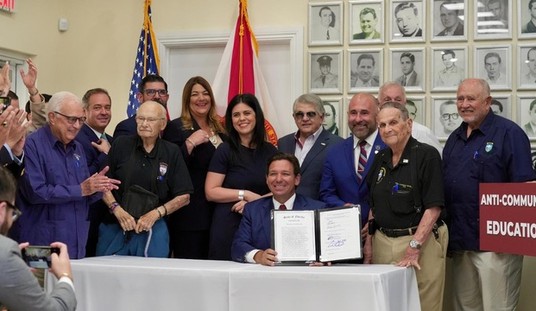He should stop talking about it as much as he can, I mean. He’s the president, he’s destined to get questions about it. He’ll need to brief the public periodically, even with Mike Pence and Anthony Fauci as the day-to-day faces of the administration response. But he can deflect most questions with vague reassurances — “we’re making progress on mass testing,” etc — and his public briefings will all be scripted.
He should stop musing on the subject.
Because when he muses, he inevitably strays towards self-interested happy talk. And happy talk is the opposite of what’s needed now.
In this clip, Trump:
1. Denies WHO’s coronavirus death rate based on “hunch”
2. Calls coronavirus “corona flu”
3. Suggests it’s fine for people w/ Covid-19 to go to work
4. Compares coronavirus to “the regular flu,” indicating he doesn’t get the difference pic.twitter.com/uC9c03zX31— Aaron Rupar (@atrupar) March 5, 2020
Nothing he says there is strictly untrue. It is likely that the *current* WHO death rate of 3.4 percent will be revised downward over time as testing expands from the most critically ill cases to people with mild symptoms. And he was right when he complained this morning that he never encouraged anyone who’s under the weather to go to work. He says it matter-of-factly in the clip: Some people with mild symptoms might head to the office without even realizing that they have COVID-19. The problem with what he told Hannity last night isn’t specific misinformation, it’s the overall emphasis. Watching the segment, the average person’s takeaway would be, “Well, maybe this is no big deal.”
But it is a big deal.
The 61,099 flu-related deaths in the U.S. during the severe flu season of 2017-2018 amounted to 0.14% of the estimated 44.8 million cases of influenza-like illness. There were also an estimated flu-related 808,129 hospitalizations, for a rate of 1.8%. Assume a Covid-19 outbreak of similar size in the U.S., multiply the death and hospitalization estimates by five or 10, and you get some really scary numbers: 300,000 to 600,000 deaths, and 4 million to 8 million hospitalizations in a country that has 924,107 staffed hospital beds. Multiply by 40 and, well, forget about it. Also, death rates would go higher if the hospital system is overwhelmed, as happened in the Chinese province of Hubei where Covid-19’s spread began and seems to be happening in Iran now. That’s one reason that slowing the spread is important even if it turns out the disease can’t be stopped.
There’s an outbreak of potential Wuhan proportions developing in Seattle as you read this. We had six weeks to ramp up testing nationally so that we might detect the first wisps of smoke if coronavirus began to burn somewhere inside the United States. The CDC farted that time away, so now there’s an actual blaze threatening to become a runaway forest fire. This is not a moment for happy talk about how relatively few trees are likely to burn.
Because some people, listening to happy talk like that, will get complacent and decide there’s no need to act when they see fire in the distance. Rod Dreher is furious:
I tell you a particular reason why this makes me so angry. My widowed mother is 76 years old, and has the kind of breathing difficulties you would expect from someone who has spent a lifetime smoking heavily. I’ve been trying my very best these last few days to get her to take the medical warnings seriously, to stock up on medicines and supplies, and to stop going out of the house unnecessarily, based on the CDC’s warnings to seniors. She’s trying to be a good soldier, but it’s all such an abstract threat to her, because the coronavirus hasn’t yet been officially found here in Louisiana. She said don’t worry, if she gets sick, she’ll just stay in bed and take ibuprofen. I’ve had to patiently explain that the coronavirus mortality rate for people in her age group is eight percent, and that given her age and diminished lung capacity, she would have a hell of a time fighting it (and she certainly wouldn’t do it alone; I would go up there and move in to care for her). There is no guarantee that if she needed the hospital, that there would be a bed available for her if she gets sick. Don’t risk going out, I’ve begged her. It’s just not worth it. Let me or a neighbor bring you anything you need, until the threat goes away.
Here’s the thing: she’s an avid Fox News watcher, and Trump supporter. When the President of the United States, a man she believes in, appearing on a Fox program, minimizes the seriousness of the threat, at best this is going to confuse her, and at worst it’s going to undo all the work I’ve been trying to do to protect her health.
Trump’s core message should be encouraging people to keep their distance from others to the greatest extent possible in hot zones, starting with Seattle and L.A. Even if a mass outbreak is inevitable because of the CDC’s incompetence, slowing down the spread of the illness by reducing contacts between people will prevent hospitals from being overloaded. Chinese authoritarianism is such that they can deploy workers to build new hospitals almost literally overnight to expand capacity; we can’t do that, and even if we could, the number of doctors and nurses is finite. Happy talk from Trump is especially dangerous considering how older people, the group most endangered by COVID-19, skew Republican and may be more prone to believe him when he suggests that this will be no worse than a common flu. Fauci described his outlook on the disease this way recently: “It could be really, really bad. I don’t think it’s gonna be, because I think we’d be able to do the kind of mitigation. It could be mild. I don’t think it’s going to be that mild either.” When the list of possible deadly epidemic outcomes includes “really, really bad,” that’s not a moment for complacency.
But the president can’t resist happy talk. For instance, Fauci and others like Alex Azar have had to correct him repeatedly about the timetable for a vaccine. He keeps misunderstanding them as saying it might be ready within months, i.e. before the election. In reality, testing will begin within months but it won’t be ready for public use until a year to a year and a half from now — too late to benefit him in November, which may be why he’s having so much difficulty with the timetable. The irony is that happy talk is not only likely to hurt others by encouraging them to take risks that’ll lead to wider contagion, it’ll hurt him politically by destroying his credibility after he’s spent so much time congratulating himself and his administration for limiting the number of cases in the United States. If he wants to minimize the spread and minimize the electoral fallout, he should err on the side of encouraging people to believe the outbreak will be larger than expected, not smaller.
I’m still not convinced, though, that he sees this chiefly as a public health issue instead of a stock-market issue. If you’re worried about an epidemic, you have every reason to argue against complacency. You want to spook people into taking precautions. If you’re worried about a downturn in the Dow, however, then you don’t want to spook anyone. To the contrary, you might try happy talk to restore investors’ complacency, er, I mean confidence. (It’s not working, as a look at the markets today will show you.) Increasingly this has the feel of an all-in bet by Trump that either his team will successfully contain the virus soon even though the CDC is already backing off estimates of how many test kits it’ll send out this week or that the onset of summer will tamp down COVID-19 infections the way it tamps down the flu, which is very much an open question. If he loses that bet and we have a mass outbreak, he loses everything — lives, his credibility, public confidence in his leadership, and any hope of preventing a major market slide.
If you want to see the potential for voter anger about this, read this story about irate Washingtonians demanding to be tested for coronavirus as the disease spreads and being told that capacity still remains extremely limited. There are broad political lessons to be drawn from this episode, surely, but in a hyperpartisan era only the narrowest, most self-interested ones will do:
It's a testament to the power of partisan psychology that a virus seemingly tailor-mutated to confirm populist priors about the perils of globalized supply chains originating in Red China is being minimized by certain right-wingers because Trump doesn't want it to be a big deal.
— Ross Douthat (@DouthatNYT) March 5, 2020
Exit question re: the clip above: How did Trump learn only recently that tens of thousands of people die of the flu in the United States every year? He’s 73 years old.








Join the conversation as a VIP Member